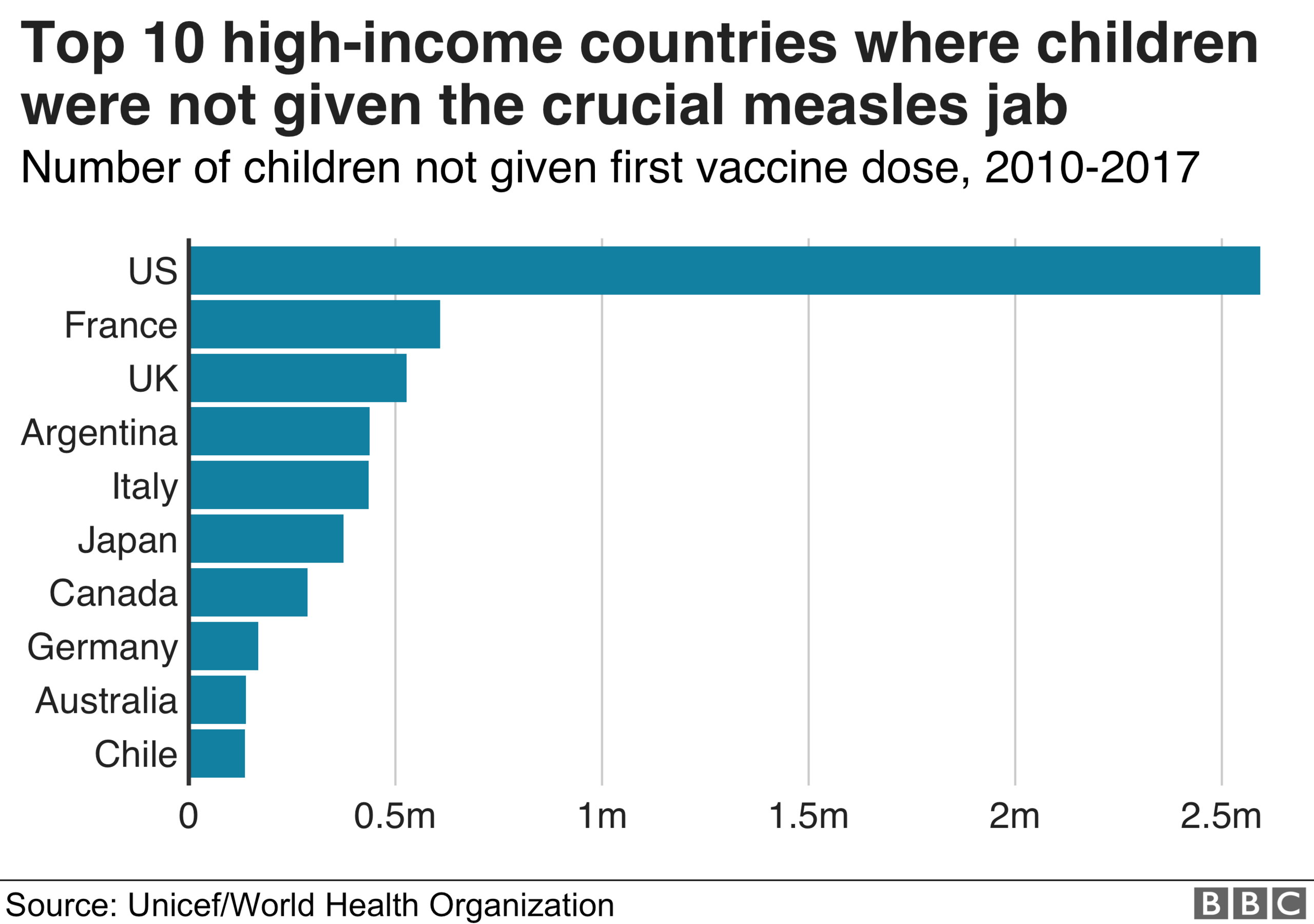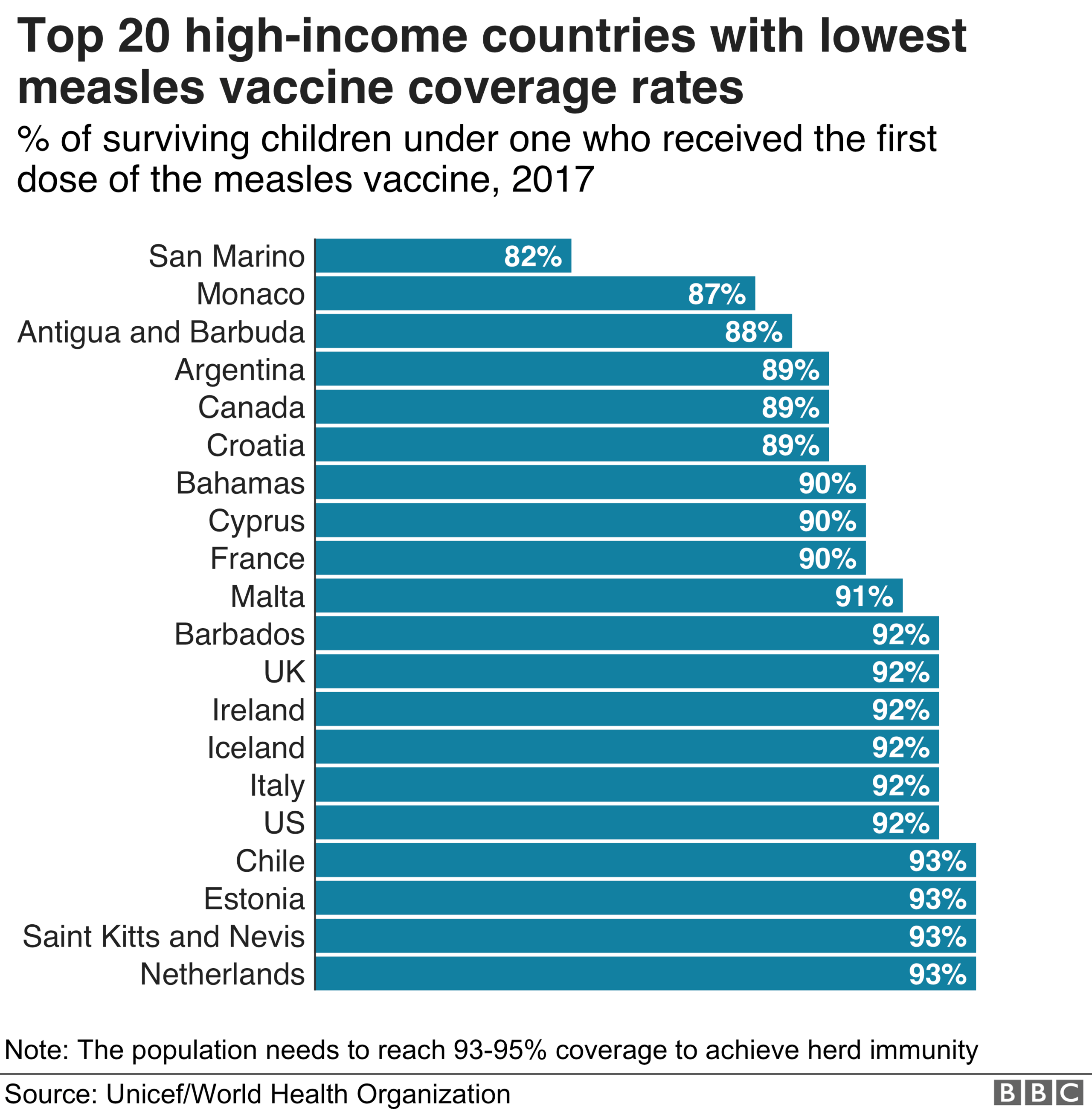Measles outbreak: Trump tells Americans to 'get their shots'
- Published
President Trump tells Americans to get vaccinations
President Trump has told Americans to "get their shots" as measles cases spread across the country.
"The vaccinations are so important," he told reporters outside the White House.
Nearly 700 cases have been reported across 22 states amid a resurgence of the highly infectious disease, the US Centers for Disease Control and Prevention (CDC) says.
Mr Trump has previously appeared to link vaccines and autism. Public health experts say there is no link.
Vaccination rates have dropped steadily in the US with many parents objecting for philosophical or religious reasons. Others, known as "anti-vaxxers", believe discredited information that vaccines cause autism in children.
The CDC says measles cases have reached a level not seen since 2000, when the disease was eliminated from the US.
Mr Trump's warning comes as hundreds of staff and students at universities in the Californian city of Los Angeles have been quarantined over fears they may have contracted measles.
Those who were at risk of being infected were asked to stay at home unless they could prove their immunity.
As of Thursday, 82 people at the University of California (UCLA) were unable to provide vaccination records, the university says.
At California State University, 156 people - including library employees and students - could not provide records and remain in quarantine, AP news agency reported.

What has Trump said about vaccines?
Mr Trump's latest comments contrast markedly from his previous public statements about vaccinations.
During a Republican primary debate in 2015, he suggested vaccines were responsible for what he called an "epidemic" of autism. He said he was in favour of vaccines, but wanted "smaller doses over a longer period of time".
He also held meetings with several prominent anti-vaccine campaigners ahead of the 2016 election.
He has also linked vaccinations to autism in earlier social media posts.
Allow X content?
This article contains content provided by X. We ask for your permission before anything is loaded, as they may be using cookies and other technologies. You may want to read X’s cookie policy, external and privacy policy, external before accepting. To view this content choose ‘accept and continue’.
How serious is the measles outbreak?
Measles is a highly infectious disease and can cause serious health complications, including damage to the lungs and brain.
But despite the dangers, vaccination rates are declining in many countries.

There have been more than 110,000 measles cases worldwide in the first three months of 2019 - a rise of 300% compared to last year, World Health Organization figures show.
The increase in measles cases in the US "is part of a global trend seen over the past few years as other countries struggle with declining vaccination rates" the CDC says.
BBC health correspondent Smitha Mundasad explains the US measles outbreak